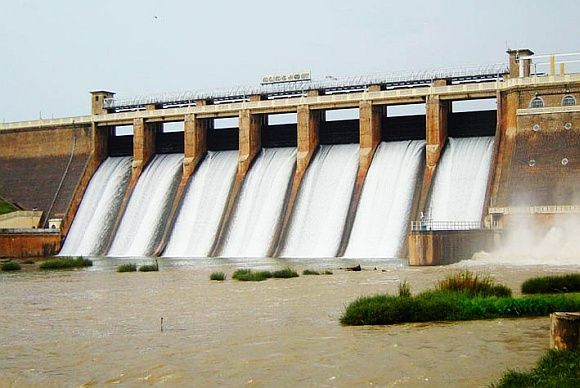India is facing an acute water shortage.
As the temperature rises, the water level decreases and because of mismanagement, a lot of water goes waste.
Even though there are a lot of efficient ways to save water, like rainwater harvesting, but their implementation is questionable. With the onset of monsoon, Rediff Labs analyses the current storage departure of water in 91 reservoirs across the country.
Current water storage departure of major reservoirs (in %, as on May 18, 2017) from 10-year average, which is current water level in a reservoir as compared to the 10-year average.
The data shown in the above map is taken from Central Water Commission. The size of the circle represents the full reservoir level. The colour of the circle shows the departure from the average of last 10 years.
Normal storage is available in Narmada, Mahi, Ganga, Sabarmati, Godavari, Tapi and Mahanadi and neighbouring east-flowing rivers.
Close to normal level is available in west-flowing rivers of south.
The Indus and rivers of Kutch are water deficient, while Cauvery and neighbouring east-flowing rivers and Krishna basin are highly deficient.
The map below shows statewise current water storage departure.
States like Tripura, Uttar Pradesh, West Bengal and Madhya Pradesh have more than 75 per cent access to water and states like Tamil Nadu, Uttarakhand and Andhra Pradesh have shortage of more than 50 per cent.
One part of India has good access to water, while the other part suffers from water shortage. Is it because people fail to save water or because of incorrect implementation of government schemes in that part of the country?
For more data driven journalism, check out Rediff Labs











